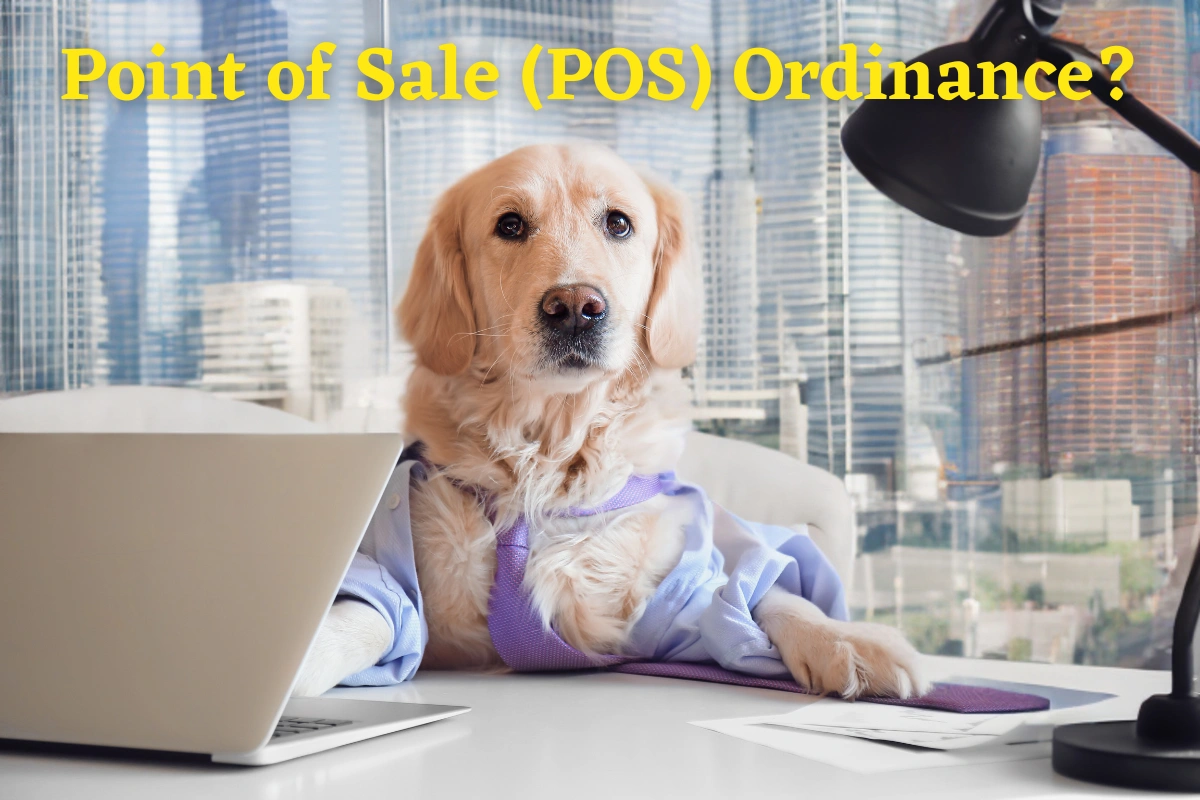At the time of sale, city-mandated property repairs are important. That’s what a POS ordinance is about.
Many local governments require a seller or buyer to make repairs so that certain conditions are met when a property changes hands. These regulations, called POS (Point of Sale) ordinances, are meant to keep properties safe and environmentally healthy. They exist to protect buyers, maintain community standards, promote public health, and encourage energy efficiency. Simply put, a POS ordinance is a checklist of items to complete during a property sale.
The listed rules are set in place by cities to protect the community, ensuring the property in question complies with what the city feels is critical. For example, replacing the sewer lateral to prevent rain water from overwhelming water treatment plants, or maintaining sidewalks to avoid trip hazards. At the same time, these rules maintain the quality and appeal of our neighborhoods. When properties are well-maintained they boost property values as well as safety, and this benefits everyone. Or at least that’s the idea.
Some cities are concerned about energy efficiency. Sometimes energy audits or upgrades are mandated to reduce energy consumption and greenhouse gas emissions. And sometimes POS ordinances are a way to give local governments the power to force repairs when a property sells.
How do POS ordinances work in the East Bay?
POS ordinances differ depending on where you live. As noted above, they might ask for inspections on plumbing, or sidewalks, or for energy efficiency. Maybe a seismic shut-off valve for your gas meter will be mandated. Sellers may be required to make repairs or upgrades before a sale goes through. But it’s also possible that sellers and buyers can negotiate who will make the changes. In Oakland we have a sewer and sidewalk compliance at point of sale. In Berkeley we have sewer and a BESO inspection. (BESO is Berkeley’s energy conservation inspection.) No work is required under BESO, but recommendations are made to the new owner.
Are POS Ordinances something everyone agrees on?
Yes and no. Point of sale requirements give government the power to force sellers and buyers to take action on issues (like sidewalks, and sewer lines) that the cities feel are critical to the health and safety of the community.
Many folks bemoan the need for POS inspections. They feel POS inspections and required repairs add extra costs to the property sale. That’s true, no question. But the cities do not have the funding to undertake all the work, so they force it on individual transactions. For buyers and sellers, it is a financial burden. And compliance with POS ordinances can cause delays in property transactions, and that’s frustrating. Others feel these ordinances are “government overreach” and that the government should stay out of allowable market conditions. Plus, buyers and owners can find the differing rules in different areas confusing.
To top it off, it can be argued that POS ordinances disproportionately impact lower-income property owners who may have difficulty paying for necessary repairs or upgrades. With POS ordinances, housing can be more expensive, not more affordable. It actually raises the cost of housing. Yet the need is there. So how do we overcome this?
The city should, in our view, create a bond or fund to pay for certain repairs above a certain threshold or below a certain price point. If the idea is to have affordable housing, adding increased expenses with point of sale ordinances, transfer taxes etc., seems to do the opposite.
FAQ about What is a Point of Sale (POS) ordinance?
What is a POS ordinance and why is it important in real estate transactions?
A POS ordinance is a set of regulations that require property repairs to be completed at the time of sale, to ensure the property is safe and environmentally healthy. They exist to protect buyers, maintain community standards, promote public health, and encourage energy efficiency.
What kinds of repairs may be required under a POS ordinance?
POS ordinances differ depending on the city, but they may include inspections of plumbing, sidewalks, and energy efficiency. Some cities may also require seismic shut-off valves for gas meters or upgrades to reduce energy consumption and greenhouse gas emissions.
Are POS inspections required in every city?
No, POS ordinances differ depending on the city.
Who is responsible for making the repairs required under a POS ordinance?
In some cases, the seller may be required to make repairs or upgrades before the sale goes through. However, in other cases, sellers and buyers may negotiate who will make the changes.
Do POS inspections and required repairs add extra costs to the property sale?
Yes, complying with POS ordinances can be a financial burden for buyers and sellers, and it can also cause delays in property transactions.
Why do some people feel that POS ordinances are “government overreach”?
Some people feel that POS ordinances are an example of government overreach and that the government should stay out of allowable market conditions.
Do POS ordinances impact lower-income property owners more than others?
Yes, it can be argued that POS ordinances disproportionately impact lower-income property owners who may have difficulty paying for necessary repairs or upgrades.
Can compliance with POS ordinances actually make housing more expensive?
Yes, complying with POS ordinances can raise the cost of housing.
What can cities do to overcome the financial burden of POS ordinances on buyers and sellers?
One solution would be for cities to create a bond or fund to pay for certain repairs above a certain threshold or below a certain price point.
How can buyers and owners keep up with the differing POS rules in different areas?
Buyers and owners can research the POS ordinances in their area, consult with a local real estate agent, or seek advice from a real estate attorney.

